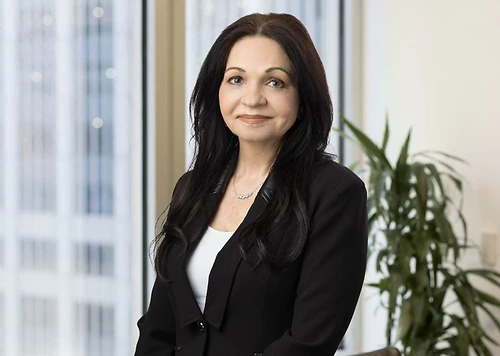In March 2022, the Russian government issued a decree that allows Russian companies to infringe the patents of patent owners from certain “unfriendly countries” (including the United States and European countries) without recourse. While the decree was focused on patents, a few days after the decree was issued, a Russian court refused to enforce the British-owned Peppa Pig trademarks, allowing a Russian infringer to continue his infringing activities, citing the “unfriendly actions of the United States of America and affiliated foreign countries.”
Since then, a number of clearly infringing trademark applications have been filed in the Russian trademark office by Russian companies. Among the companies affected are McDonalds, Starbucks, IKEA, Chanel, Givenchy, and many others. At the same time, many U.S. and European companies have ceased doing business in Russia.
There are also doubts whether companies based in the United States, EU, and other counties that have levied sanctions against Russia will be able to maintain their trademark registrations as it may become more and more difficult to pay the fees required for such maintenance.
All of this raises serious questions for brand owners and the viability of brand protection in the Russian market. There is no certainty as to how this will ultimately play out or what the best strategy will be for a brand to protect itself.
As a practical matter, three years of non-use of a trademark in Russia could result in the cancellation of the trademark registration by third parties. This has been the law in Russia (and most other countries) for many years and is not a recent development. Thus, any brand that is not using its mark in Russia for that period of time is at risk of losing its trademark rights. Given the number of companies no longer doing business in Russia, if this withdrawal continues longer than three years, those companies could begin to lose their rights under long-standing Russian laws.
Also, the Russian government’s apparent willingness to ignore the trademark rights of companies from “unfriendly” countries undoubtedly give rise to an increase in counterfeit products entering the Russian market and possibly being exported from Russia. With the courts failing to enforce the trademark rights of such brand owners, it will leave many brand owners without any recourse at the source in Russia and could cause a rise in the distribution of counterfeit products through countries that are still doing business with Russia.
One important function of a trademark is to protect consumers who want to know the products they are buying come from trusted brands. By allowing infringements and counterfeit products, the Russian government and courts could ultimately be harming consumers in Russia as well as the rest of the world. This becomes more important for certain products such as car parts, food products, or cosmetics, which have health and safety issues to consider.
TAKE AWAY
The current legal standards are evolving. At this juncture, the best strategy for a brand for the time being seems to be trying to maintain its Russian trademark registrations while monitoring the situation including its IP rights. Trademark rights in Russia arise through registration; without registration, a company would have virtually no rights. By maintaining its registrations, a company may at least have a chance to protect its rights.
- Partner
Mary advises her clients in all facets of brand development, management and protection. Representing clients spanning the fashion, cosmetics, entertainment, financial services, technology, food, restaurant, and general ...

